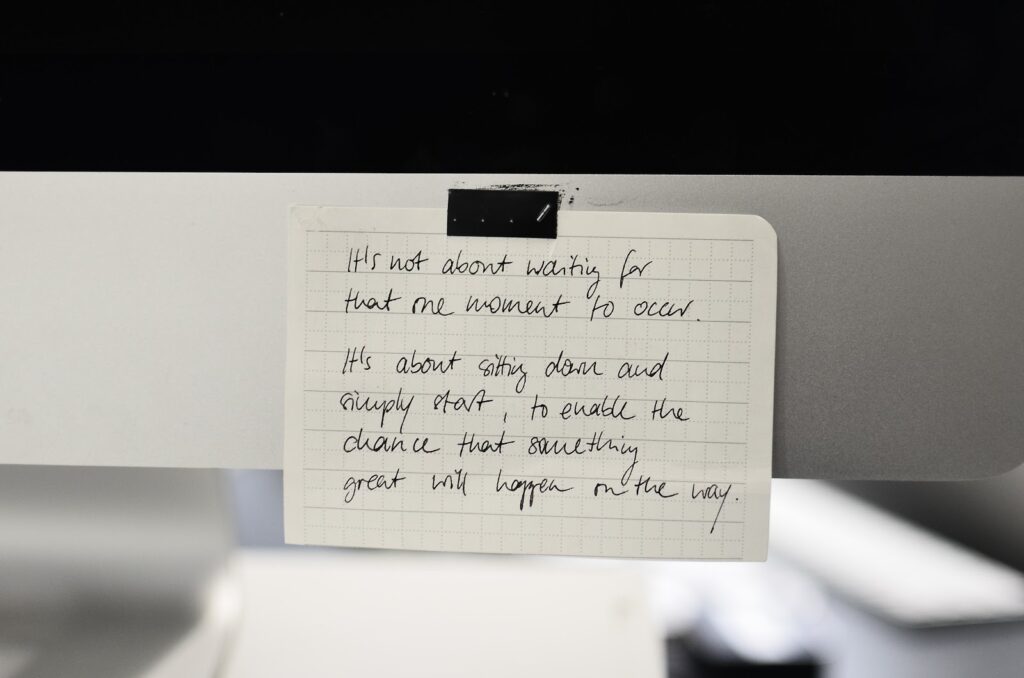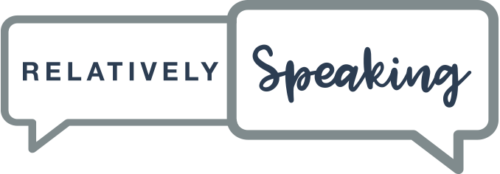It seems more than a little ironic that I’ve been procrastinating writing a new blog, but I suppose it makes this a relatable subject. It’s not that I didn’t want to write it; I knew it needed to get done (SEO best practices, yadda yadda), but it just kept sliding on my schedule. Any one of us could name 10 things they should be doing, but here we are.
This University Affairs article on “The Pull of Procrastination” reminds us that even Leonardo da Vinci “consistently imagined and started projects only to abandon them, leaving a litany of unfinished paintings, sculptures and building designs in his wake.” (1)
Even with that great of company, it’s easy to feel guilty about the decision to procrastinate. Look at the pressure society puts on people to be productive and the focus we put on achieving your goals despite all odds. So, when you don’t, how can you remove your ego and take an honest look at the reason you procrastinated in the first place?
These three strategies can help you understand your addiction to procrastination:
#1: Identify The Cause

For some, procrastination is playful. It can feel “good to be bad” and that little act of defiance is a thrilling display of self-autonomy. “I knew I needed to do XYZ, but instead, I’m choosing to do ABC because I get to decide what to do.” However, it can still be detrimental in the long term, leaving huge messes for “future you” to clean up. Those deadlines and obligations don’t typically go away, you’re just giving yourself less time to complete them.
Another common scenario is the “alternate priority.” This type of procrastination is logical. “I know I needed to do XYZ, but ABC also needed to be done, so I was still productive.” This is often a hard pill to swallow since this method of procrastination seems to justify the decision to avoid what actually needed to get done and alleviate some of the guilt. However, it’s the guilt connected to procrastination that needs to be addressed here.
It helps to understand what procrastination is NOT.
If you need to complete XYZ, but an emergency (ABC) happens and you need to pivot and deal with that first, that’s a new, competing, priority. In contrast, procrastination often presents itself as a choice in the moment, when you intended to work on XYZ (and maybe even had all the tools and time you needed to complete it), but you still chose to do something else “because you didn’t feel like doing” the original action.
This New York Times article on “Why You Procrastinate (It Has Nothing to Do With Self-Control)” even clarifies that “procrastination isn’t a unique character flaw or a mysterious curse on your ability to manage time, but a way of coping with challenging emotions and negative moods induced by certain tasks.” They list a few common examples such as: boredom, anxiety, insecurity, frustration, resentment, self-doubt and beyond. Sound familiar?
Well, by the New York Times’ own definition, this blog is a bit of a joke since “we can’t just tell ourselves to stop procrastinating. And despite the prevalence of “productivity hacks,” focusing on the question of how to get more work done doesn’t address the root cause of procrastination.” This is why we didn’t load this article with “fast and easy” tricks to change your behaviors overnight. The quick strategies we offer should help inform you about this toxic loop, but it’s still up to you to work through these true causes of procrastination on your own.
If that seems like a tall order, go easy on yourself and don’t beat yourself up if you still procrastinate every once and a while. The NYT article goes on to explain, “several studies show that self-compassion supports motivation and personal growth. Not only does it decrease psychological distress, which we now know is a primary culprit for procrastination, it also actively boosts motivation, enhances feelings of self-worth and fosters positive emotions like optimism, wisdom, curiosity and personal initiative.” (2)
#2: Start Small – Just Start

So maybe you’re working on it. Your awareness is heightened and you’re ready to take the next step, but now you’re a little frozen. This is uncharted territory and it can be intimidating even getting started when you’ve operated so long in a “time crunch” mad dash to the deadline. (It can be exhilarating, can’t it? For those of you who think, “I do my best work under pressure.” Are you sure you do?)
This BBC article on Why procrastination is about managing emotions, not time,” Psychology expert Tim Pychyl from Carleton University in Canada suggests, “the next time you’re tempted to procrastinate, “make your focus as simple as ‘What’s the next action – a simple next step – I would take on this task if I were to get started on it now?’”. Doing this, he says, takes your mind off your feelings and onto easily achievable action. “Our research and lived experience show very clearly that once we get started, we’re typically able to keep going. Getting started is everything.”” (3)
It may even feel boring. Especially mundane tasks are prime targets for procrastination since the mere thought of doing “XYZ” just didn’t get you that excited. That’s why they suggest just getting started whether you “feel like” doing it or not. Oftentimes, we won’t feel inclined to complete required actions, but that doesn’t change if they need to be done. The trash will still need to be taken out eventually and the longer you wait, the worse the experience will be for you.
Remember that you’re given the choice to procrastinate or not and while you might choose the immediate pleasure of “not doing that boring XYZ,” you’re really making it more annoying when you actually do complete it and you’ll likely do a worse job, too.
“Begin doing what you want to do now. We are not living in eternity. We have only this moment, sparkling like a star in our hand – and melting like a snowflake.” Francis Bacon, English philosopher
#3: Give Yourself Some Breathing Room

We’ve covered a LOT here and it can feel like overhauling your life to go from 0 to 100 on the productivity scale (or even 40 to 80). Big jumps made habits even harder to break, and form, so don’t be afraid of baby steps here. Just like the grace and compassion you’re working to give yourself when you are seduced by the scroll-trap of social media, or just the “alternate priority paradox,” you’ll also want to give yourself a little flexibility in the improvements you choose to make to be most successful.
If you want to lose weight, maybe start by changing a behavior related to diet or exercise. Those can start in smaller “bits” too, like just focusing on soda first if you eventually want to cut out all sugar from your diet. The same is true with your schedule and time management. Don’t think that just because you read this one article (and maybe the sources below, too – highly recommended, btw) that you’re a pro and you’ll never procrastinate again. That’s just as unrealistic.
Instead, start with general guidelines. One example from this McGraw Center for Teaching and Learning article titled “Understanding and Overcoming Procrastination” is to “Un-schedule – If you feel stuck, you probably won’t use a schedule that is a constant reminder of all that you have to do and is all work and no play. So, make a largely unstructured, flexible schedule in which you slot in only what is necessary. Keep track of any time you spend working toward your goals and reward yourself for it. This can reduce feelings of being overwhelmed and increase satisfaction in what you get done. For more see the book Procrastination by Yuen and Burka.” (4)
If you want even more tips on this, check out our other RelSpeak article that talks about similar strategies for managing your schedule.
BONUS – #4: Even More Resources

We don’t want to overwhelm you with resources, but if this is fascinating for you (it was for me when I was researching the subject), you might also enjoy checking out the following additional resources.
Simon Fraser University
This site offers a multitude of online resources for learning about and battling procrastination. It’s especially geared toward online learning and the complexities of the work from home migration of 2020.
https://www.lib.sfu.ca/about/branches-depts/slc/learning/procrastination
Mind Tools
You could call this site a “training conglomerate.” Offering a multitude of blogs on any given professional subject, this is a great page summarizing procrastination. There’s videos, quick tips, and correlations to other conditions and situations.
https://www.mindtools.com/pages/article/newHTE_96.htm
PS Print Blog
This final resource is a smaller blog with a great list of technology that might help you to focus. The tools listed are generally industry-specific, but good if you’re a writer or illustrator where you can get zoned into your program. However, they can be somewhat limiting for those of us who need to do any marketing for our work since the first sites that get blocked and restricted with those tools are social media sites. Ironic.
https://blog.psprint.com/printing/10-anti-procrastination-resources/
Good Luck!
It’s never easy changing old habits, but you can do anything if you just get started. Life without procrastination is more peaceful and will get you back to the things you love sooner.
Practice makes perfect, so check out or Lunch & Learn workshops to continue growing your skill sets!
For a deeper dive into this subject, book private coaching so we can give more personalized recommendations for your unique situation.
SOURCES:
- https://www.universityaffairs.ca/features/feature-article/the-pull-of-procrastination/
- https://www.nytimes.com/2019/03/25/smarter-living/why-you-procrastinate-it-has-nothing-to-do-with-self-control.html
- https://www.bbc.com/worklife/article/20200121-why-procrastination-is-about-managing-emotions-not-time
- https://mcgraw.princeton.edu/understanding-and-overcoming-procrastination

